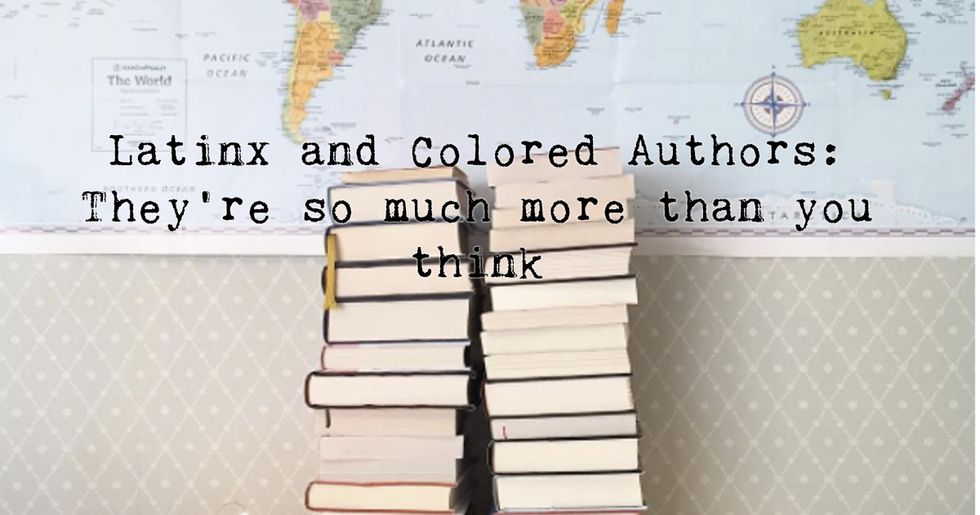Nicholas Sparks, Veronica Roth, Stephenie Meyer. what do all these authors have in common? They’re bestselling authors, have movie rights, millions of their books sold, international fame--only to name a few, but even more than that, they're all white. Now, this isn't turning into an article that is shaming white authors, white-privilege, or these specific authors, I just want everyone to understand that there are other authors in the word that are just as talented with such amazing stories.
Personally, I don't like reading best selling authors in order to give other authors a chance to shine since I already know millions of people are reading books like The Hunger Games and The Maze Runner, but not Gabi, A Girl in Pieces or The Hate U Give. Again, not shaming anyone, but which title did you first recognize, even if you've never read or seen the movie? As an English major, I'm exposed to many different books and authors, but, in the end, most of them are white. Why do I have to wait until I take an “ethnic” literature class to get a taste of worldwide literature?
So why--that's my question to you--why should we have to read the books of ethnically different authors? The Hate U Give by Angie Thomas (if you recognize this title yas!) If not, you should, since this book shook the reading world, not just because it was written by an amazing African American woman, but because she touches upon topics that most people haven't ever seen in books. Racism, police violence, familial and personal struggles--all real topics in real settings that we are in every day, and finding a book like this helps you though those feelings and experiences, allowing you to understand and work through them. Thomas's book hit the heart of so many people that before it was even released there was already a movie deal down. Thomas is just one of the so many examples of colored author beauty. Another example of this unseen beauty is Gabi, A Girl in Pieces by Isabel Quintero. During the time of my Latinx identity crisis, I didn't know where to turn--my whitewash side of the family, my super religious and strict family, or my family that I have no blood relations to. I didn't know what to think about myself: am I Colombian? Do I have to claim the side I feel no connection to? Can I claim the side of my family that raised me and is a part of me in every way except DNA? Well, my questions weren't getting answered, but after reading, I knew I wasn’t alone with my struggles.
So why should you read books and authors like these? Maybe you shouldn't, but if you want over-dramatic stories or one that has no emotional connections to you than continue reading those fiction stories I first mentioned. But if you're in the mood to feel justified and know that there's someone out there who understands you, look into Latinx or colored authors and authors who have been around the world in both fiction and nonfiction because there's a world out there that no one has been able to see and you should be the first one to find it.
















